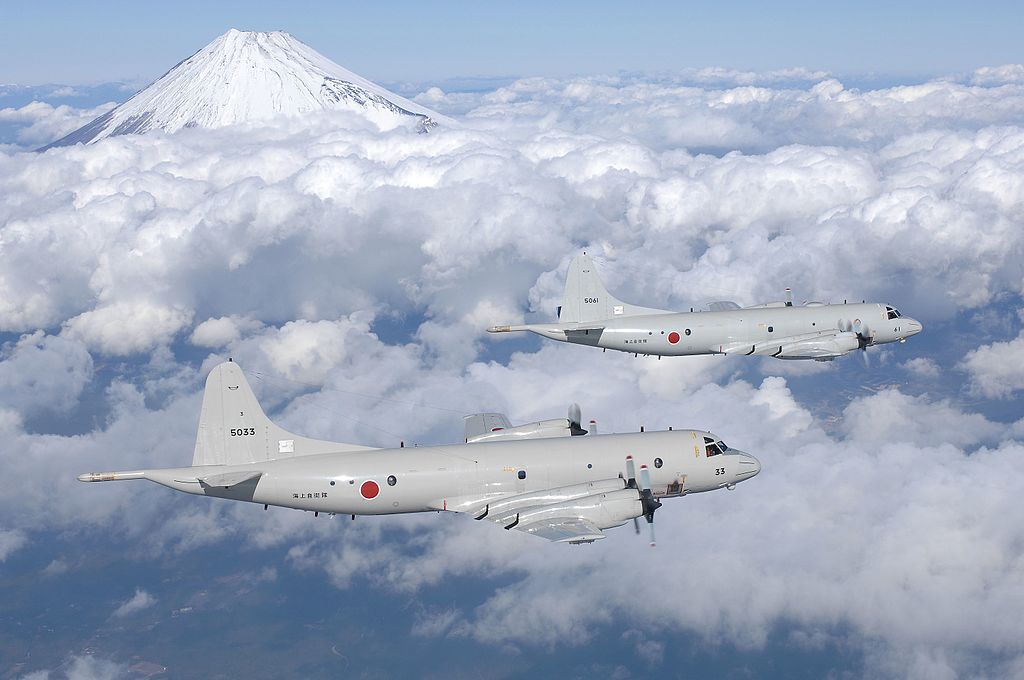
Japan Maritime Self-Defense Force butai 01 – 04.
“Beijing is determined to change the status quo in the South China Sea by continuing to harass neighboring ‘small’ countries.”
In March 2023, the nationalist Japan Times published the excerpted article written by Kuni Miyake, the research director for foreign and national security affairs at the Canon Institute for Global Studies in Tokyo. Miyake argues the Philippines has growing concerns about Chinese policies in the South China Sea, including the building of military outposts on atolls claimed by the Philippines.[i] Therefore, the Philippines is more likely than in previous decades to be open to a trilateral partnership with Japan and the United States.
Miyake acknowledges that Philippines leader Rodrigo Duterte has signed economic agreements with Beijing related to issues ranging from oil and gas exploration to fishing rights. However, provocative actions by the Chinese navy, including targeting a Philippine Coast Guard ship with a laser device in the Philippines’ exclusive economic zone, and China’s harassing other smaller Southeast Asian countries, has contributed to momentum building in the Philippines government for closer security partnerships with Japan and the United States. In contrast to Beijing, Miyake argues that Japan must stress to the Philippine government the important geopolitical role of the Philippines in their bilateral relations. Miyake’s article comes after the Philippines began contemplating a visiting forces agreement (VFA) with Japan.[ii] For example, the second excerpted article in the Philippine publication Inquirer from November 2022 quoted the country’s Senate President, Juan Miguel Zubiri, who supports a VFA. Another senator stated a VFA would not only be beneficial to the Philippines because of the training Japan can provide, but also because the VFA would increase mutual preparedness between Japan and the Philippines for natural disasters and other humanitarian emergencies.
Sources:
Kuni Miyake, “The geopolitical trajectory of the Philippines is changing,” japantimes.co.jp (English-language daily with a nationalistic editorial perspective), 8 March 2023. https://www.japantimes.co.jp/opinion/2023/03/08/commentary/world-commentary/philippine-trilateral-cooperation/
Returning to Manila this time, I was struck by a series of developments: a growing anxiety toward China among the populace, dramatic improvement in U.S.-Philippine relations and growing momentum to advance trilateral-security cooperation between Japan, the Philippines and the United States, which until a few years ago would have been only a dream.
In January of this year, Marcos was invited to China as a state guest and signed 14 agreements as the Chinese business community expressed intentions to invest $22.8 billion in the Philippines. Nevertheless, Beijing is determined to change the status quo in the South China Sea by continuing to harass neighboring “small” countries. In February this year, for example, a Chinese Coast Guard vessel blocked the path of a Philippine Coast Guard ship within the island nation’s exclusive economic zone while another Chinese vessel targeted a Philippine ship with a laser device…. What I found most fascinating in Manila was the idea that security cooperation between Japan, the U.S. and the Philippines is gaining momentum these days.
“Senators push for VFA with Japan,” inquirer.net (popular pro-democracy newspaper in the Philippines), 14 November 2022. https://newsinfo.inquirer.net/1692799/senators-push-for-vfa-with-japan
Senators are keen to endorse a visiting forces agreement (VFA) with erstwhile invader Japan, making it only the third nation with which the country has such an extraordinary agreement, next to the United States and Australia. “I’m sure we can muster enough support in the Senate for a visiting forces agreement with Japan. They’re good partners,” Senate President Juan Miguel Zubiri said during the Senate plenary’s marathon budget deliberations on Thursday night.
Forging a VFA with Japan would not only be helpful in joint training but also during natural disasters, said Senate President Pro Tempore Loren Legarda.“This is not just military training but it will also include disaster response and disaster risk reduction.”
China’s force buildup in the region and opportunities for trilateral coordination and cooperation will be among the key topics on the agenda.
Notes:
[i] One of the first significant South China Sea confrontations between China and the Philippines occurred with China’s seizure of Scarborough Shoal in 2012. At the time, the Philippines believed an agreement existed whereby both countries would withdraw naval patrols from the shoal as typhoon season approached. However, when Philippine ships left the shoal, China placed a barrier across the entrance to the shoal and stationed coast guard boats there to chase away Philippine fishing boats. See: Mark Raymond and David A. Welch, “What’s Really Going On in the South China Sea?,” Journal of Current Southeast Asian Affairs, Vol. 42(2), 214-239, August 2022. https://journals.sagepub.com/doi/full/10.1177/18681034221086291
[ii] Since the rise of China in the 1990s, Philippine and Japanese political leaders and high-ranking defense officials have conducted goodwill visits and high-level dialogues, while Japan has consistently provided emergency relief assistance to the Philippines in the wake of earthquakes and typhoons. However, a VFA between the two countries would represent a significant elevation of the two countries’ bilateral ties. See: Renato Cruz De Castro, “Exploring a 21st-Century Japan-Philippine Security Relationship: Linking Two Spokes Together?,” Asian Survey Vol. 49 (4, 691-715), 2009. https://online.ucpress.edu/as/article-abstract/49/4/691/24277/Exploring-a-21st-Century-Japan-Philippine-Security?redirectedFrom=fulltext
Image Information:
Image: Japan Maritime Self-Defense Force butai01 – 04
Source: https://commons.wikimedia.org/wiki/File:Japan_Maritime_Self-Defense_Force_butai01_-_04.jpg
Attribution: Japan Maritime Self-Defense Force, CC x 4.0
